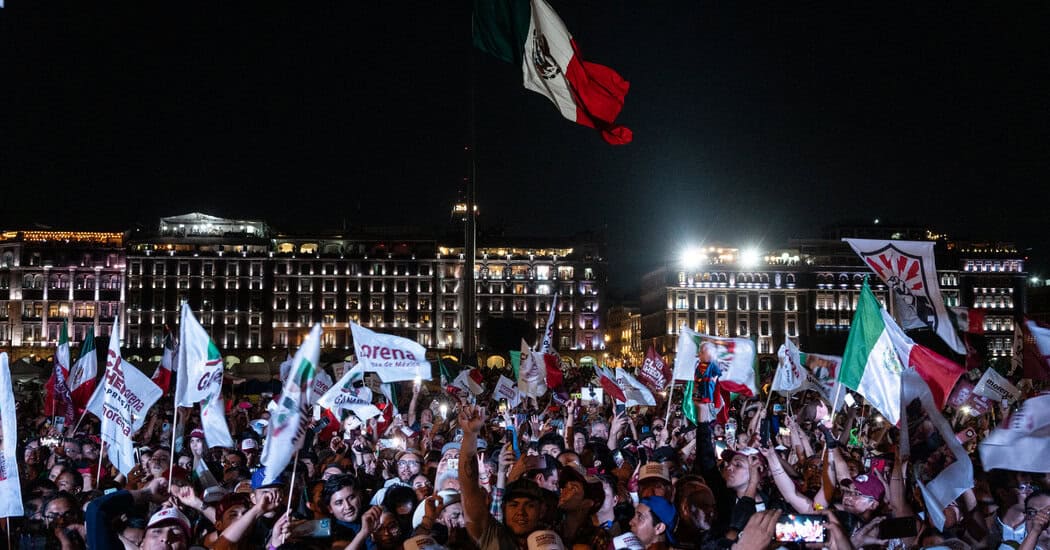
Mexico’s Presidents Get Only One Term. Is That a Good Thing?
The incumbent president of Mexico, Andrés Manuel López Obrador — usually known by his initials, AMLO — is so popular that he almost certainly would have won another term if his name had been on the ballot last Sunday.
But Mexico’s Constitution has a strict one-term limit for presidents. So instead, Claudia Sheinbaum, a climate scientist and the former mayor of Mexico City whom López Obrador anointed as his chosen successor, ran and won a landslide victory.
One-term presidential limits are relatively rare. Many countries, like the U.S. and France, allow two terms. In parliamentary systems like Britain, Spain and Canada, there are no term limits: Prime ministers are technically chosen by their party, not the voters (though the party officials who choose them are often elected by the public), and can stay in office as long as their party heads, the government and their parliamentary colleagues support them.
The downsides of a one-term limit are fairly obvious: an elected president might be just getting into his or her stride on an ambitious long-term policy goal or structural reform. Leaving after one term might mean that important work is left unfinished, or easily erased by a successor.
Some might argue that the whole concept of term limits is undemocratic. Their purpose, after all, is to prevent the public from electing their first-choice candidate if that person has already held office for the maximum time permitted.
So why shouldn’t voters get to choose for themselves?
The answer, experts say, lies in the delicate balance required to protect democracy from itself.